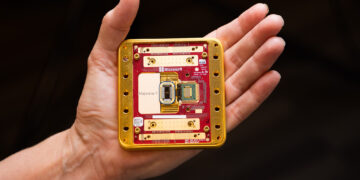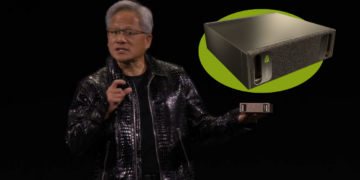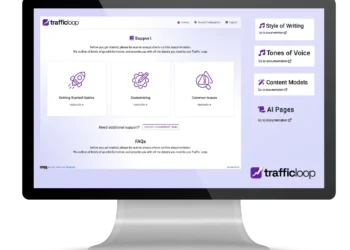-Alisha
WHAT IS META QUEST
Meta Quest is a series of VR headsets, developed by Meta Platforms, Inc., formerly known as Facebook, Inc. These innovative headsets deliver immersive VR experiences without the need for a PC or external sensors. Thanks to their standalone design, they integrate processing capabilities right into the headset. Consequently, this allows users to explore a broad array of VR experiences. These range from games and educational tools to fitness apps and social platforms, all with the convenience of wireless operation.
Moreover, these devices feature cutting-edge technology. For instance, inside-out tracking employs onboard cameras to accurately monitor user movements. Similarly, hand tracking enables more natural interactions within virtual environments. Since the introduction of the original Oculus Quest in 2019, there have been significant updates and new additions to the series. For example, the Meta Quest 2 offers improved resolution, superior processing power, and a design that is both lighter and more comfortable. As a result, Meta Quest has emerged as a leading force in the VR sphere, reflecting Meta’s dedication to enhancing VR accessibility and performance. This is in line with its broader ambitions for the metaverse.
THE VISION BEHIND META QUEST
Furthermore, Meta’s vision, as articulated by Mark Zuckerberg and the company’s leadership, transcends simple rebranding. The transition to Meta Platforms, Inc. symbolizes a strategic pivot towards cultivating the metaverse. This concept encompasses a shared virtual space that merges enhanced physical reality, AR, VR, and the internet into a cohesive, immersive environment. Here, users can interact in ways that far surpass current internet capabilities.
CREATING NEW SOCIAL AND ECONOMIC OPPORTUNITIES
Additionally, Meta perceives the metaverse as the forthcoming phase of the internet. It envisions digital interactions becoming more tangible and intuitive. In this future, individuals could instantly project themselves as holograms to various locations. Whether it be a workplace without the commute, a concert with friends, or a family gathering, VR and AR technologies promise to make these experiences more engaging and lifelike compared to traditional screen-based interactions.
DRIVING TECHNOLOGICAL INNOVATION
In pursuit of this, Meta is committed to spearheading the technological advancements necessary for the metaverse’s realization. This includes substantial investments in hardware, such as the Meta Quest VR headsets, and in software developments that enrich virtual environments. Meta’s vision encompasses technologies that support a wide spectrum of experiences, from gaming and entertainment to virtual workplaces and educational settings within the metaverse.
FOSTERING AN INCLUSIVE AND INTEROPERABLE ECOSYSTEM – FUTURE PROSPECTS
Equally important, Meta strives to foster an inclusive and interoperable metaverse ecosystem. It is working on standards and protocols that enable different virtual environments and applications to connect seamlessly. This initiative aims to allow users to navigate between experiences effortlessly, carrying their digital assets and identities with them. Meta emphasizes the need for industry-wide collaboration to ensure the metaverse is accessible and ripe with economic opportunities.
INITIATIVES AND DEVELOPMENTS
In line with these goals, Meta has embarked on numerous initiatives to actualize its vision of the metaverse. These include investments in VR and AR through its Reality Labs, focusing on the development of hardware, software, and content. Oculus VR headsets, a cornerstone of Meta’s strategy, facilitate entry into virtual spaces for a multitude of activities. Meta also envisions a unified metaverse where cross-platform interactions are seamless, addressing complex issues like digital identity and governance. The company is committed to empowering digital creators and businesses within the metaverse, paving the way for new forms of commerce and social engagement.
CHALLENGES AND CONTROVERSIES
Nevertheless, Meta’s ambitious journey towards the metaverse has encountered its share of challenges and controversies. Privacy, security, misinformation, and the potential social impact have sparked concerns. Critics also highlight the risk of exacerbating digital addiction and blurring the lines between physical and digital realities. Moreover, Meta faces stiff competition from other tech giants and startups that are also venturing into the metaverse, blockchain technologies, and NFTs.
FUTURE PROSPECTS
Despite these challenges, Meta’s vision for the metaverse represents a groundbreaking reimagining of digital interactions. Overcoming the associated technical, ethical, and governance obstacles is paramount. Success will hinge on collaborative efforts with other industry stakeholders, regulators, and the global community to ensure the metaverse is safe, inclusive, and beneficial for all. As Meta continues to invest in the necessary infrastructure and technology, the potential to revolutionize how we connect, work, and play is enormous. However, this also brings substantial responsibilities in guiding the development of this new digital era.
Author: Alisha Iman
































